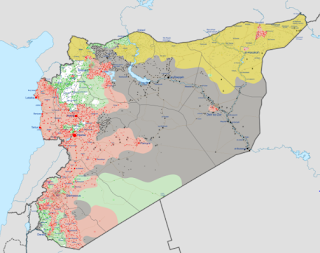If a small army of Islamist terror fanatics makes its base in a crowded city, and will not let women and children leave, it is very hard to know what to do. For instance, the Iraqi army was faced with this problem in 2014 when it sought to recapture the city of Fallujah from Jihadists. Nouri al-Maliki, then President of Iraq and so the West’s ally, used barrel bombs to fight ISIS terrorists in Fallujah. Pro-ISIS propaganda made much of the civilian deaths, but I don’t recall the USA, or the BBC, or the moralizing choir who now emote over Aleppo and shout ‘war-crimes’, saying much. Nor do we hear at all from these moralists about Saudi Arabia’s rather savage little war now going on in Yemen (using British munitions) [well, in fairness, we do hear about Saudi Arabia, Yemen and British munitions on the BBC's 'Newsnight'. They've been heavily reporting the story for months] in which more than 2,000 civilians are said to have died. There’s a similar problem over the severe criticisms of the Syrian government made by the USA’s diplomats and their mouthpiece, the BBC.
Near-identical repression of dissent in Bahrain and Egypt (currently our allies) passes with barely a mention. Their governments aren’t called ‘regimes’. Why is this? For instance, on a recent edition of BBC Radio 4’s over-rated ‘Today’ programme, the presenter, Justin Webb, stated as a matter of fact that Russia ‘has no obvious interest’ in bringing the Syrian war to an end. How does he know? He then used that interesting phrase ‘some who think’. There are some (namely me) who think this is a BBC way of sliding an opinion into a place where it shouldn’t be. Anyway, according to Mr Webb ‘There are some who think they (the Russians) want it to go on and on and on in order to damage Europe with the flows of migrants’. No doubt there are, but who are they, and are they right, and why is Justin Webb smuggling this opinion (especially if it isn’t his) into a major news programme?
A BBC spokesperson says feebly that this is ‘news analysis’, but it looks to me like taking sides. From the start I have been shocked by the BBC’s partial coverage of this issue, and its willingness to be a conduit for war propaganda in Syria, as it was in Libya. This is important because we are being softened up for a war far more risky than that in Libya or Iraq. In Syria, western forces might actually find themselves in direct combat with Russian troops and planes. Can you begin to imagine how dangerous that could be for Europe and the world?
Please don’t be rushed into supporting such a thing, even by the BBC.
As everyone's writing about Syria today, here's something I prepared earlier on the subject (about a month ago) but didn't get round to publishing because I wasn't sure it was well-thought-through enough. Still, as it ties in with the above piece, here goes anyhow. Please see what you make of it:
Having been focused so much on Brexit-related matters in recent months I must have failed to notice a lot of other BBC bias-related issues. But out of the corner of my eye I do seem to have semi-registered a lot of the BBC's Syria-related coverage. And I think, not having much of a bone in the fight, that I can state with some confidence that the BBC has overwhelmingly featured partisan voices from only narrow side of this many sided-conflict - and, far more than anyone else, the voices of/supporters of 'the moderate Syrian opposition'. Voices supportive of what the BBC calls "the Assad regime" (with the same regularly that it calls IS "the so-called Islamic State") are voices I've very rarely heard.
I almost blogged about it a couple of months ago when a Newsnight special on Syria was so staggeringly one-sided (in favour of 'the moderate Syrian opposition' against 'the Assad regime') that it struck me as something quite extraordinary. And an episode of PM reminded of that, featuring (as it did) two anti-'Assad regime' voices.
As one of those people who used to kind-of think of the BBC as having its own foreign policy rather than merely following the dictates of the Foreign Office, I've started to rethink matters. Of course, my rethinking might be leading me into Corbynista-style conspiratorialism, but the BBC's apparent siding with a particular stand in the Syrian conflict (against the 'regime') does strike me as being worth getting a serious handle on.
My personal bias on this is that I can't really find any side, other than the Kurds (and even they - in Syria - are linked to Turkey's far-left, terrorist PKK), to root for. Like many though, I find the barrel-bombing, Hizbollah-backed/backing butchers of 'the Assad regime' a somewhat safer option than the heart-eating, 'moderate Syria opposition' who have aligned themselves with the al-Qaeda boys there, if only because Bashar and Asma aren't the types to slaughter non-Muslims, run amok in Paris or behead Catholic priests in Normandy. They keep their own atrocities local (though their well-recorded, highly cynical use of the very worst Islamists to help them survive gives me another cause for having a 'pause for thought' about them).

No comments:
Post a Comment
Note: only a member of this blog may post a comment.